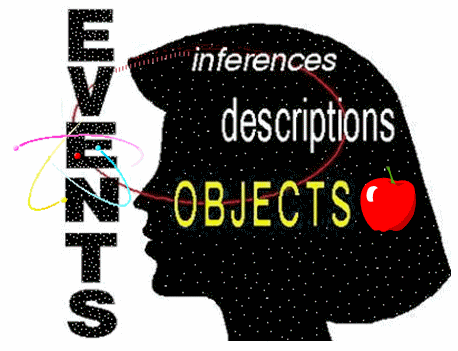
"What 'is' Salt?" A Reply
Written by Daniel Greenwald, Columbia University, 1997.Mr. Lewis,
I read you're essay entitled "What 'is' Salt" and I felt it necessary as a Philosophy major and lover to respond to it.
By describing salt in the manner you did -- that is, by giving it many attributes -- you displayed what Descartes calls knowing it through a faculty of the mind, or reason. You removed any sort of sensation of the body from your description, and described salt through reason; Rene Descartes, a philosopher, would say you described it then.
Godfried Leibniz, another philosopher, would say that you described the "notion" of the "substance" which is salt. He would say that proceding in such a manner (describing it through reason) and then describing its functions its extension (position) and even it's appearance (its impact upon your senses) would cause you to give a greater picture of the notion of salt.
Plato, yet another philosopher, would say that you described the attributes of the pure form of salt; that what you did was relay the attributes of the ideal of salt, and that these are present in the natural "copies" of this ideal form.
Thomas Nagel, yet still another philosopher, would say that you are simply describing what it is like to be "acquainted" with salt. And that you can have knowledge of this sort only. You could never know what it is like "to be" salt; therefore you could never truly know what salt "is."
Betrand Russell, another philsopher of this century (cf. Nagel), would say that you have both "Knowledge of Acquantance" and "Knowledge of Description" concerning salt. You, being a man who has encountered salt, can describe what salt is like: it's appearence, it's taste, it's attributes. And you, as a man of science, have knowledge of description, in that you can give the chemical structure of salt, you can describe the process by which it is formed, etc...
Henri Bergson, yet another philosopher of this century, would go farther than that, combining the ideas of Nagel with those of Russell, and say that you could approach the true description of what salt "is" by describing it in so many ways that you approach its notion (cf. Leibniz). If you could procede in descibing it in an infinite amount of ways then, and only then, _might_ you know it truly.
>C.S. Peirce, yet still another philosopher of this century, would say that you know what salt is already, and that it's simply the knowledge _you_ have of salt which comprises the notion of salt, and that there would be no reason to change your view of salt unless someone (possibly a philosophy professor in the spring of '76) gave you true justified reasons to change your belief concerning what salt is.
I wrote this not to educate you on the opinions of these philosphers nor to point out that these people were philosophers, because, as I could tell from your essay, you are learned in this field somewhat. I simpy point out to you that what you said is, in fact, concurrent with what many other philosophy professors have said. You had a good opinion concering what salt is, and this was derived from Korzybski's thories, which were derived from previous thinkers (in the very field of philosophy, as well as linquistics). The professor you described is unlike any in the field of philosophy that I have ever encountered through either discourse or reading; he seems to be a poor philsopher (according to your description). Thus I say to you, Do not discount philosophy and philosophers because of the experience you had with a sole professor.
Go to General Semantics Home Page ||| Go to Steven Lewis Home Page